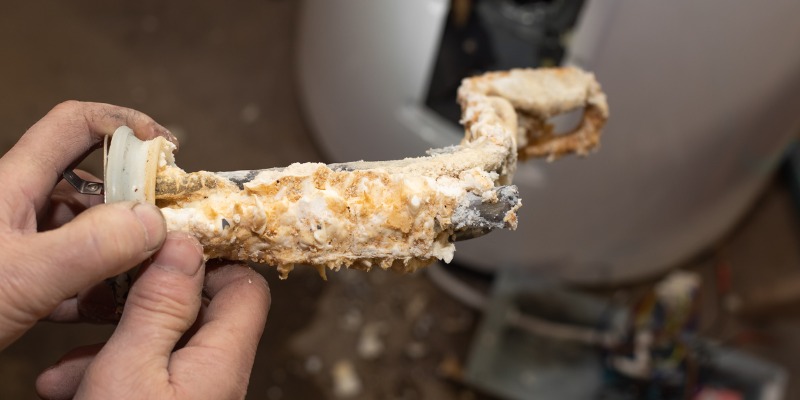
If you hear a clanking or rattling sound coming from your boiler, it is likely caused by minerals from hard water. These flakes move around in the boiler and as more minerals accumulate, the pressure in the tank increases. This is because the minerals take up space. Newer boilers have safety features to prevent the pressure from reaching dangerous levels, but when this happens it also turns off your heat. Here we look at the four main harmful effects of hard water in boilers and how to protect it.
1. Hard Water Damages the Tank
Boiler scale can do a lot of damage to the tank of your hot water boiler. As sediment from boiler scale settles at the bottom of the tank, it interferes with heat production from the burners. If you notice your home isn’t as warm, it is likely due to scaling. This is because as the heater tries to warm the water, bubbles are escaping through the tank which disturbs the sediment. As a result, the agitation starts to wear down the tank lining, which means corrosion can occur leading to leaks.
2. Hard Water Damages the Tubes
Scale also harms the tubes and pipes that move water from the boiler to your rooms. This has three effects. The first is that the scale interferes with the movement of the heat through your home because it acts as an insulator. The second is the tubes can crack if they overheat. The third is the scale builds up so much that it blocks water so it can’t travel through the pipes, damaging the entire system.
3. Accelerated Wear and Tear
Because scaling fills the tank and impedes water movement, there isn’t enough space for the water to be stored and flow. This increases the pressure in the heat exchanger, so the system pump is forced to work harder to move the water through the narrowed paths. As a result, the entire system experiences accelerated wear and tear leading to costly repairs.
4. Wasted Energy
All of the above issues contribute to energy usage, as the system tries to compensate for the scale buildup. The harder the pump works, the more energy it wastes, and the more repairs are required. This has a double impact on your pocketbook.
How to Protect Your Boiler from Hard Water
There are a few steps you can take to manage issues with your boiler and hard water:
- Annual Inspection: Schedule an annual inspection of your heat exchangers with an HVAC expert and have them cleaned.
- Descale Your Boiler: If you are wondering how to descale a boiler heat exchanger, you can buy chemical scale remover to flush out deposits from boiler pipes. These descalers help with calcium build-up in a boiler, limescale, etc. Professional cleaning is also recommended.
- Phosphate Balance: Excess phosphate in boiler water reacts with boiler scale creating iron and iron sodium phosphates. This builds on hot boiler tube surfaces and throughout the system. Have a phosphate balance performed each year to determine when phosphate levels are high.
These tips can help keep your boiler operating at optimum performance.
Are you looking for an HVAC specialist to inspect your boiler’s performance? Contact our HVAC experts today.




